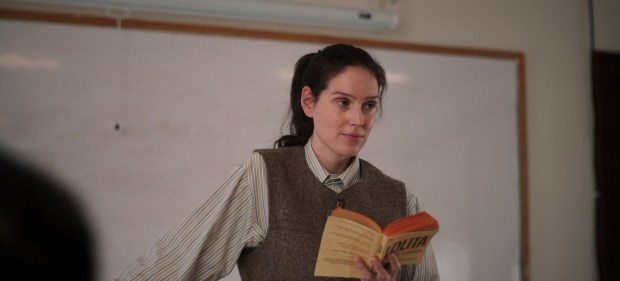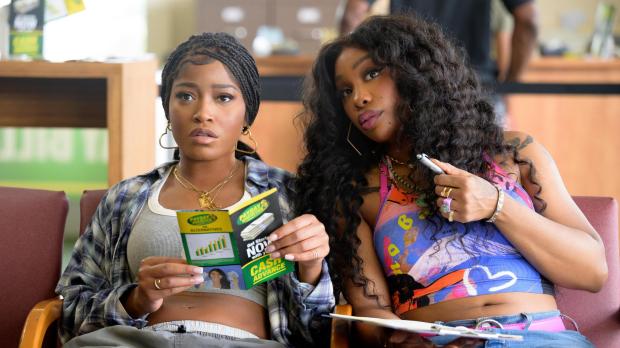You can only go so far with writing what you know. Many debut films, even those by talented writer-directors, begin as personal stories before devolving into strangely impersonal, global ones that you don’t quite believe or trust.
I apologize, but Baby is so much better than that. Eva Victor’s debut film as a writer, director, and star feels like a lived experience that has been meticulously crafted, thought through, and analyzed.
It has an unexpected tone that is mostly humorous without being pessimistic. The film doesn’t only write what you already know. Victor adhered to a stricter, more difficult internal directive: Write what you know and what you need to learn.
The tale is either about or not about a sexual assault that occurred at a college. Several years after being mentored and then raped by her beloved professor, Agnes, the witty heroine played by Victor, must make sense of her present tense. Although the incident is already in the past, it is scarcely out of sight or memory.
Victor keeps this fluid idea of past and present flowing as a complex emotional state by arranging the narration in a non-chronological manner. At the start of Sorry, Baby, Agnes is doing well as a professor of English literature at the same small New England university where she completed her PhD studies. She now resides in a relatively isolated old house filled with books close to school with her cat. The picture has a warm, invigorating buzz thanks to the wonderful rightness of Victor and Ackie’s interaction with Lydie, Agnes’s good friend from graduate school, who is played by the amazing Naomi Ackie.
Lydie asks her once if she spends a lot of time outside the house. Even if Agnes answers vocally, her body language, evasive gaze, and other cues speak for themselves. Just before the following segment of the movie transports us back to Agnes and Lydie’s graduate school years, Lydie’s query remains unanswered.
In this scene, we witness Agnes on the verge of her future surrounded by thoughts, books, and viewpoints, along with a jealous classmate (Kelly McCormack, a bit too broad as written and portrayed in the movie’s one tonal miscalculation). The campus conversation topic Decker (Louis Cancelmi), a professor with a dysfunctional marriage and a novel that Agnes has barely read but is unquestionably published, has taken notice of Agnes’ writing. Although the power dynamic is not reciprocal, the admiration is.
The instructor abruptly changes the time of his meeting with Agnes to his home close to campus. We watch as Agnes shows up, is welcomed at the door, and enters. For an abnormally long time, the camera remains outside, by the sidewalk and down the steps. It’s becoming dark by now, and Decker shows up in the doorway, sort of apologizing, as she finally falls back out on the porch. Sort of? The scene is also over.
When Agnes is finally ready to discuss what happened with Lydie, we find out some disturbing details about it. As Victor stated in a post-screening conversation, “Sorry, Baby” started with the idea of how to capture the assault—that is, what not to reveal. The director stated, “We don’t get to be behind the door in real life.” We believe people after hearing about what transpired. (And) we can know without going inside.
Related Articles
-
Jurassic World Rebirth bites off $318 million at the global box office
-
2025 s best movies (so far) include Sinners, Sorry Baby and One of Them Days
-
On 40th anniversary of Back to the Future, Allstate celebrates its role in creation of DeLorean time machine
-
Disney World expansion floating along in 3 theme parks
-
A look back at Jaws The first summer blockbuster that just turned 50
From that point on, Sorry, Baby keeps going back and forth through the years between what transpired and Agnes’ current location. At first glance, the quirky neighbor (Lucas Hedges, unerring) seems like call-the-police material, but things don’t turn out that way. Agnes discovers that it might be difficult to express oneself honestly and directly, and that lifelines can come from anywhere.
We see and hear Agnes trapped in strange linguistic mazes as she battles the college’s human resources department while trying to report the professor. Later, when she is being selected for jury duty for an unrelated reason, Agnes explains the incident in her past to her interrogator in strangely humorous ways. In these sequences, Victor is walking a tightrope; Sorry, Baby is as much about everyone in Agnes’ immediate vicinity expressing their comprehension or worry about the Bad Thing in her history.
In addition to the well-paced overall structure, you wouldn’t mind spending an additional five or ten minutes hanging out, and some of the more overt instances of gloomy comedy are better refined than others. However, even that is a sign of achievement. How many noteworthy films did you see this year that left you feeling that they may have been a bit longer? Disarming, lucid, and, yes, obviously semi-autobiographical, Apologies, Baby does everything in her power to elevate Agnes above the status of a tragic yet witty victim, with a heartwarming conclusion just around the corner. She is simply embracing the weight of her existence, which is full of ups and downs, without finding a solution or resolving the negative aspects of it.
Of course, Victor is also responsible for this accomplishment. The promise of this subtly amazing debut director has already been realized.
I apologize. 3.5 stars (out of 4)
MPA rating: R (for language and sexual content)
Duration: 1:44
How to watch: July 4 is the first day it opens in theaters.
Michael Phillips is a critic for the Tribune.










